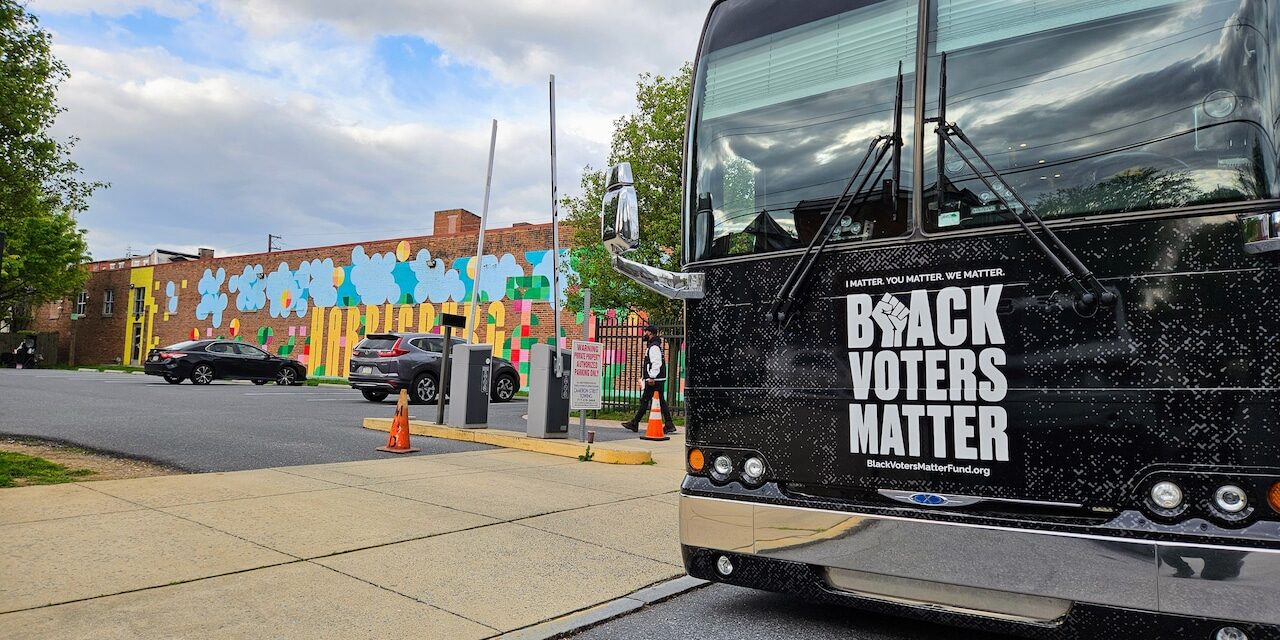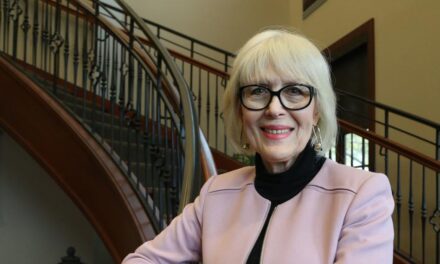
Donald Trump‘s victory over Kamala Harris in the presidential election nearly two weeks ago disappointed and saddened many Black Democratic voters in New Jersey. Now as the president-elect forms his cabinet and plans to take power, some of that disappointment is now focused on a Democratic Party many activists say worries about Black voters only at election time.
Harris, who was vying to become the first woman and second Black president in American history, carried New Jersey, but by a margin of only about 5 percentage points — much closer than expected.
The election and and having New Jersey nearly put into swing state territory has prompted Black Democrats on the local and federal level to do soul-searching, questioning whether the party has functioned in Black people’s best interests — and wondering if the feeling of apathy they warned about for decades finally caught up with the party.
“Don’t lose hope,” were the first words New Jersey African American Chamber of Commerce president John Harmon said when asked about the election.
Harmon supported Harris, whose campaign did focus on Black voters in the campaign’s final stretch. But he said this goes beyond the presidential election. The Democratic Party, he said, has taken the Black vote for granted. He also contends Black elected officials were more loyal to the Democratic Party machine than the Black communities they represented.
In the wake of the election, U.S. Rep. Bonnie Watson Coleman, D-11th Dist., echoed Harmon’s sentiment while endorsing Newark Mayor Ras Baraka for governor.
“Yes, Trump gained a few thousand more votes, but Kamala Harris lost half a million (in New Jersey). Why? Because Democrats have neglected the communities and people who are the backbone of our party,” Watson Coleman said in her gubernatorial endorsement statement in the New Jersey Globe.
Trump’s New Jersey vote total wasn’t that much larger than what he got in 2020, but far fewer voted for Harris compared to President Joe Biden.
“We have to turn a page,” Watson Coleman said. “We can’t keep going back to nominating the same old politicians backed by the same old special interest groups, corporate mega-donors, or single-issue organizations with big money.”
Other women in the Democratic Party noted an inability to communicate with Black men. About 78% of Black men supported Harris, slightly less than the 80% Biden got. Some analysts say Black men were not engaged during the campaign.
Rutgers political science professor Saladin Ambar said the demographic is being unfairly singled out compared to other voting blocs.
“It’s hard to go up to Black men in barbershops, and they’ve essentially voted the same way in the past couple of elections, with some slight slippage and then look at white women around the country who have continued to support Donald Trump,” he said during a segment of NJ Spotlight’s Reporters Roundtable.
“That is a conversation I’m not sure Democrats want to have,” Ambar said. “They seem to be running away from that and far more comfortable pointing the finger at Black men.”
Nonetheless, slipping support from Black men has to be considered when assessing where the party failed, said Jeannine LaRue, a veteran businesswomen and civil rights activist.
“Black men have not been part of the conversation for years,” LaRue said, “We need to look at where we have failed in the conversation that Black men felt their last resort was to support this particular candidate.”
Before the election, Montclair University professor Jason Williams warned about the lack of outreach to Black men in an election that was going to be decided on razor thin margins.
“They (Democrats) have not been able to address these economic issues as it pertain strictly to the Black community … it’s almost as if they avoid directly addressing economics for Black Americans,” Williams said.
A broad political approach covering all voters can bring on the consequence of not addressing the specific struggles of communities that feel left behind by Democrats, Williams said.
“Blacks just have to settle and get what they can get when we pass these universal policies,” he said.
Republicans take advantage of that by coming up with a communications playbook that seizes on that feeling, Williams said.
“It seems to me that Republicans are tapping into that historical grievance that Black people have had on economic upward mobility,” he said.
Baraka said the election reflected a sentiment in the Black community that little would change regardless of who was elected.
“For many Americans, the American Dream is a distant, heavy hope, burdened by economic distress and inequity that make it relentlessly out of reach,” Baraka said post-election, adding that “democracy was sacrificed at the altar of indifference.”
That indifference can be fostered by government incompetence, said Brittany Claybrooks, an Assembly candidate for the 34th legislative district in Essex County and a former Andy Kim staffer.
“People do their part, it is up to the elected official then to make the decision,” she said.
Harmon, the African American Chamber of Commerce president, had critical words for local Black politicians.
“Our Black elected officials in my opinion are not holding this party accountable,” Harmon said.
State Assemblywoman Shavonda Sumter, D-Passaic, chair of the New Jersey Legislative Black Caucus Chair, voiced confidence about initiatives for the Black community but didn’t address Harmon’s allegation when asked.
“Vice President Harris led an exceptional campaign, and while I am disappointed by the national election results, I am resolute in our mission moving forward,” Sumter said in a statement.
“As a caucus, we remain deeply committed to advancing equity and justice,” she said. “Our legislative agenda: centered on restorative justice, economic empowerment, and civil rights continues to guide us. We know that each election holds significant impact, and we work tirelessly to expand opportunities for civic participation and voting access.”
One of the caucus members, Sen. Troy Singleton, D-Burlington, helped push forward an affordable housing measure that was hailed as a landmark law.
The caucus also worked with the Murphy administration on a state commissioned disparity study that showed Black people received less than 1 percent of contracts from the state, with Essex County also falling within the same margins. They then put forward legislation with other caucuses to address those disparities with benchmark goals and offices to supervise it.
To Harmon, the fact that the same margins existed in a county known for Black political leadership was proof that Black leaders had not been doing their job.
“No matter if it is the state of New Jersey or the county with the largest concentration of Black people, discriminatory practices, exist,” Harmon said. “It appears to be a part of our state’s DNA.”
As for the legislation itself, Harmon remained skeptical, saying the bill lacked teeth and accountability measures for bad actors that try to game the system.
“It is really a time for Black people to negotiate a more equitable relationship,” Harmon said.
New Jersey has a state Legislature where Black politicians are among the most well-represented groups of color, including high profile party chairs.
Democratic State Committee Chairman LeRoy Jones, who is Black, said in a statement to supporters that the party has “lessons to learn“ and that “the past two weeks have been a reality that is incredibly hard to grasp.” He said the party has ”done so much good work regarding social issues,” noting legislation passed in New Jersey, but has failed to educate voters.
But others note that disparities persist in the heavily Democratic state, with one of the largest racial wealth gaps in the country, according the New Jersey Institute for Social Justice.
“New Jersey is a very unique place for Democrats — it’s a place where people of color are so well positioned, but so disempowered,” Claybrooks said. “It truly bothers me.”
Gov. Phil Murphy said the problems for Democrats extended beyond messaging.
“To say it’s only a messaging problem lets all of us off the hook that we’re doing everything well, we just can’t speak to what we’re doing — I think that’s too naive,” he said at a press conference discussing the election.
Baraka — the Newark mayor who is running to become New Jersey’s first Black governor — was recently at a rally in Jersey City and spoke of how he was heartbroken at the results of the election but cited it as an opportunity to move forward with a better Democratic Party.
He said the party has an obligation to unite and struggle.
“If there were 10 things — we disagree on two, we’ve got to struggle around the two, but we unite around the eight,” he said. “We have to stand together around the eight and continue to struggle around the two until we find common ground.”
NJ Advance Media staff writer Susan K. Livio contributed to this report.
Jelani Gibson may be reached at jgibson@njadvancemedia.com. Follow him on X at @jelanigibson1 and on LinkedIn.




